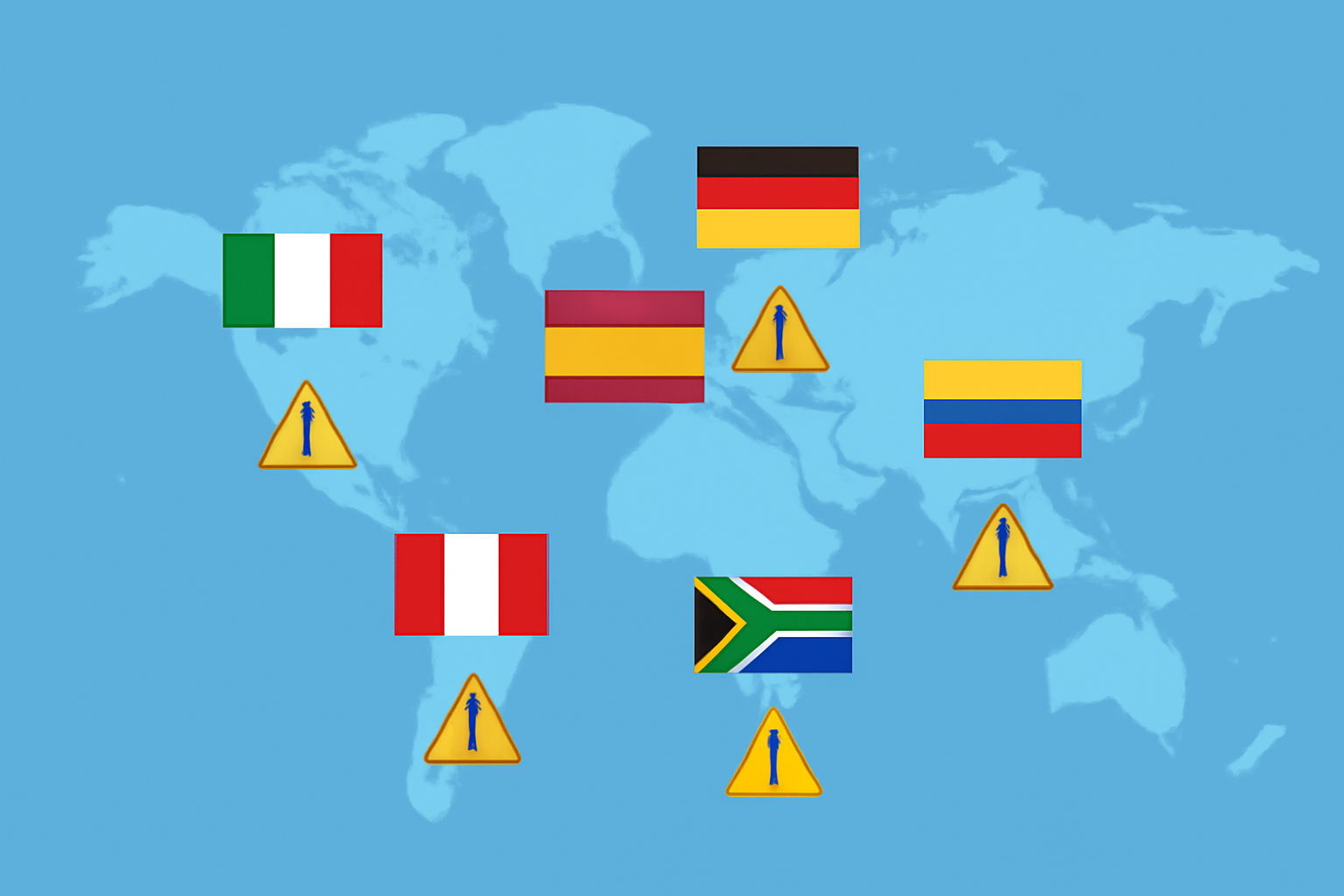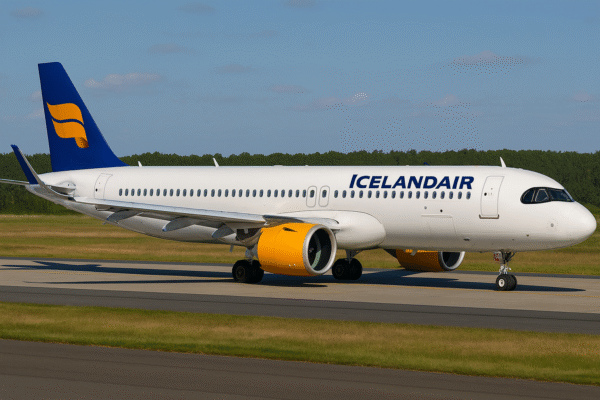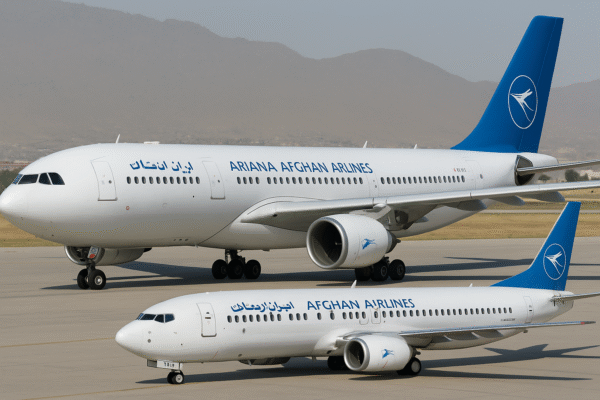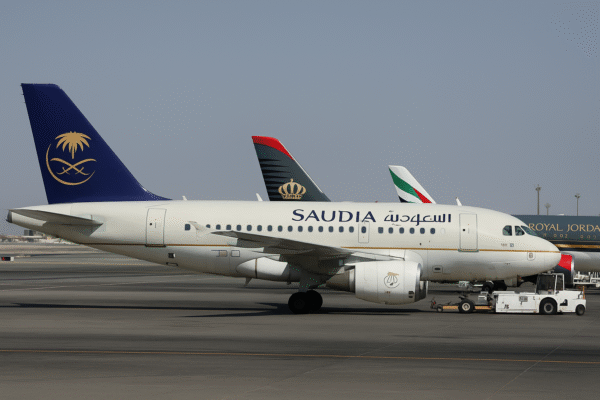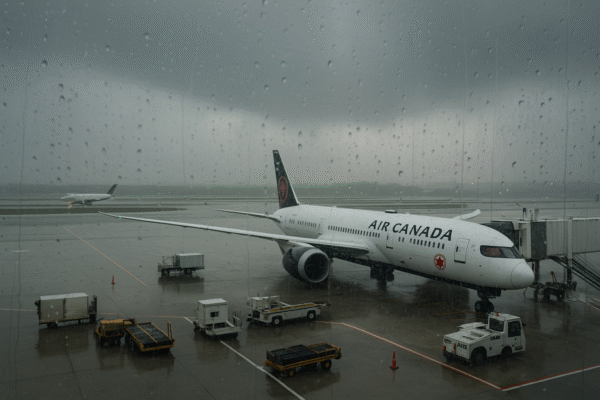A powerful wave of summer storms has wreaked havoc across Canada’s busiest air travel hubs, grounding and delaying more than 300 flights at Toronto Pearson International Airport, Montréal-Trudeau International Airport, Vancouver International Airport, and Calgary International Airport. The disruption has severely impacted major carriers including Air Canada, WestJet, Porter Airlines, and regional affiliates, triggering cascading delays nationwide during one of the busiest travel periods of the year.
Environment and Climate Change Canada issued multiple severe weather alerts from Ontario to British Columbia, as high winds, heavy rainfall, and reduced visibility converged on key flight corridors. The result was a full-scale operational breakdown across the nation’s air network, with travelers stranded, rebookings delayed, and airport terminals overwhelmed.
Toronto Pearson: Canada’s Busiest Hub Hit Hard
Toronto Pearson, handling more flights than any other Canadian airport, experienced 136 flight disruptions, including 114 delays and 22 cancellations. Air Canada alone faced 23 delays, while its regional affiliate Jazz Aviation suffered 28 delays and 5 cancellations. American Airlines, United Airlines, and several international carriers including KLM and Cathay Pacific also faced operational challenges.
With weather systems converging from both Ontario and the Great Lakes, lightning risks, wind gusts exceeding 70 km/h, and temporary ground stops all contributed to a mounting backlog of delayed takeoffs and landings. Travelers reported waiting up to 5 hours in terminals with limited updates.
Montreal-Trudeau: Delays Ripple Across Eastern Canada
At Montréal-Trudeau, 76 flights were affected, including 60 delays and 16 cancellations. Jazz Aviation again bore the brunt with 18 delays and 10 cancellations, while Porter Airlines recorded 3 delays and 3 cancellations. Foreign carriers including Air France, Royal Air Maroc, and TAP Air Portugal also faced brief disruptions.
The low cloud ceiling and visibility reduced runway throughput, forcing aircraft into holding patterns and extended gate waits. The summer tourism peak, combined with full aircraft loads, exacerbated the passenger service strain.
Vancouver: Storms Strike the West Coast
Vancouver International Airport saw 53 disruptions – 52 delays and 1 cancellation. The airport’s proximity to the Pacific jet stream made it particularly vulnerable to turbulent conditions, resulting in multiple weather holds.
Airlines impacted included Air Canada (14 delays), WestJet (6 delays), Cathay Pacific, British Airways, and American Airlines, which had the highest rate of disruption among foreign carriers, cancelling 28% of its scheduled flights from YVR.
Calgary: Rocky Mountain Weather Adds to Woes
Calgary International Airport recorded 68 flight disruptions, including 62 delays and 6 cancellations. WestJet, which has a hub presence in Calgary, suffered the most with 36 delays and WestJet Encore adding 15 delays and 5 cancellations. Jazz was notably absent from the Calgary delay list but other carriers like American Airlines and United recorded minor disruptions.
Severe thunderstorm warnings and unpredictable prairie winds posed a logistical nightmare for ground operations, especially for connecting flights to and from Western Canada.
Widespread Airline Impacts Across Canada
Across all four airports, Air Canada and Jazz Aviation experienced the highest number of total disruptions, followed by WestJet and Porter Airlines. In Vancouver, long-haul carriers including Air New Zealand, China Airlines, and Korean Air also faced sporadic delays due to unstable weather corridors.
The aviation crisis was not limited to domestic traffic. International operations were also disrupted, with passengers connecting to Europe, the U.S., and Asia missing connections or experiencing long layovers due to mismatched schedules.
Airports and Airlines Urge Caution Amid Unpredictable Weather
Airport authorities from GTAA (Greater Toronto Airports Authority) and ADM (Aéroports de Montréal) issued urgent travel advisories, urging passengers to check flight status online before heading to the airport and to anticipate longer-than-usual wait times.
“We are working closely with airlines to reassign gates and crew rotations as quickly as conditions allow,” said a GTAA spokesperson. “But safety remains the top priority.”
Traveler Frustration Mounts Over Communication Breakdowns
With call centers overwhelmed and airline apps failing to provide accurate real-time updates, many travelers took to social media to express frustration over inadequate support, unclear rebooking instructions, and limited compensation for overnight delays. Some passengers reported being stranded at Toronto and Montreal airports without access to lodging or meal vouchers.
More Storms Forecast – Disruptions May Continue
According to Environment and Climate Change Canada, more unstable weather is forecast for parts of Ontario, Quebec, Alberta, and British Columbia through the end of the week. With the summer travel season in full swing and terminals operating at near capacity, further delays and cancellations are highly likely.
What Travelers Should Do
Travelers flying through Canada this week should:
- Check their flight status frequently through airline websites and apps
- Arrive early to allow time for long security and baggage lines
- Consider rebooking flexible fare options
- Stay informed via Canada’s weather alerts portal
For more travel news like this, keep reading Global Travel Wire






